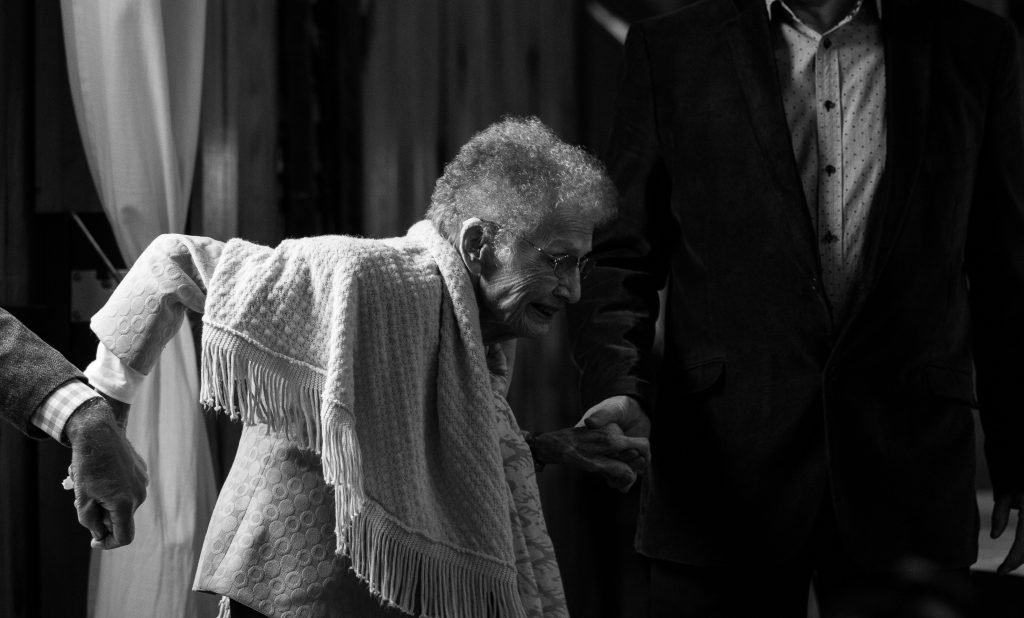If you or someone you know is a senior or has a disability, you may be wondering if there are any financial assistance programs available to help ease financial burdens. Fortunately, there are various programs specifically designed to support seniors and individuals with disabilities. These programs offer assistance for a range of needs, from healthcare expenses to housing subsidies. By exploring these options, you can discover the support and resources that can make a significant difference in your or your loved one’s life. Yes, there are several government assistance programs available specifically for seniors or people with disabilities. These programs aim to provide financial support and assistance in various areas of life, including healthcare, housing, nutrition, transportation, and legal aid. Let’s explore some of the most prominent programs in each category.
Government Assistance Programs for Seniors and People with Disabilities
Social Security Disability Insurance (SSDI)
SSDI is a federal program designed to provide financial assistance to individuals who are unable to work due to a disability. It offers monthly cash benefits to eligible individuals and their dependents. To qualify for SSDI, you must have a disability that meets the Social Security Administration’s criteria and have earned sufficient work credits.
Supplemental Security Income (SSI)
SSI is another federal program that provides financial assistance to elderly, blind, or disabled individuals with limited income and resources. It offers monthly cash benefits to help cover basic needs such as food, shelter, and clothing. The eligibility criteria for SSI include having a disability that prevents substantial gainful employment and meeting certain income and asset limits.
Medicaid
Medicaid is a joint federal and state program that provides healthcare coverage to individuals with low income, including seniors and people with disabilities. It offers a range of medical services, such as doctor visits, hospital stays, prescription drugs, and long-term care. The eligibility requirements vary by state, but generally, individuals must have limited income and assets to qualify for Medicaid.
Medicare
Medicare is a federal health insurance program available to people aged 65 and older, as well as certain individuals with disabilities. It provides coverage for hospital care (Part A), medical services (Part B), prescription drugs (Part D), and additional options such as Medicare Advantage (Part C) and supplemental plans. Medicare eligibility is based on age, disability status, or certain medical conditions.
Temporary Assistance for Needy Families (TANF)
TANF is a federal assistance program that provides financial aid and supportive services to low-income families, including seniors and people with disabilities. It aims to help families become self-sufficient by offering cash assistance, vocational training, job search assistance, and other supportive services. Eligibility criteria for TANF vary by state but generally consider income, resources, and family composition.
Housing Assistance Programs for Seniors and People with Disabilities
Low-Income Home Energy Assistance Program (LIHEAP)
LIHEAP is a federal program that assists low-income households, including seniors and people with disabilities, with their home energy needs. It provides financial assistance to help pay for heating and cooling costs, energy crisis intervention, and energy-related home improvements. Eligibility and benefits vary by state and are based on income and household size.
Section 8 Housing Choice Voucher Program
The Section 8 Housing Choice Voucher Program is a federally funded rental assistance program that helps eligible low-income individuals and families, including seniors and people with disabilities, afford safe and decent housing. Participants receive vouchers that can be used to rent privately owned housing, with the program subsidizing a portion of the rent. Eligibility is based on income and household size.
Home Equity Conversion Mortgage (HECM) Program
The HECM Program, also known as a reverse mortgage, is a loan program insured by the Federal Housing Administration (FHA) specifically for seniors aged 62 and older. It allows homeowners to convert a portion of their home equity into loan proceeds, which can be received as a lump sum, monthly payments, or a line of credit. The loan is repaid when the homeowner no longer lives in the home.

This image is property of images.unsplash.com.
Healthcare Assistance Programs for Seniors and People with Disabilities
Assistance for Medicare Part D Prescription Drug Costs
This program, also referred to as Extra Help or the Low-Income Subsidy, assists Medicare beneficiaries with limited income and resources in paying for their prescription drug costs. It provides subsidies and discounts on prescription medications, lowering out-of-pocket expenses for eligible individuals. Eligibility is based on income and assets.
State Pharmaceutical Assistance Programs (SPAPs)
SPAPs are state-run programs that provide prescription drug assistance to residents who have Medicare coverage but still need additional help with their medication costs. These programs vary by state, offering different types of benefits and eligibility requirements. SPAPs often align with Medicare Part D plans to provide more comprehensive coverage.
Medicare Savings Program (MSP)
The MSP assists eligible Medicare beneficiaries by paying for some or all of their Medicare premiums, deductibles, coinsurance, and copayments. The program has different levels of assistance, depending on income and assets. MSP benefits can help alleviate the financial burden of healthcare expenses for seniors and individuals with disabilities.
Medicaid Expansion
Under the Affordable Care Act, states have the option to expand their Medicaid programs to cover more individuals, including low-income adults without dependent children. Medicaid expansion can provide access to healthcare services for seniors and people with disabilities who may not have qualified under previous eligibility criteria. The expansion varies by state, so eligibility requirements may differ.
Veterans Programs
Veterans Pension Program
The Veterans Pension Program, also known as the Improved Pension Program, provides monthly cash benefits to wartime veterans who have limited income, are age 65 or older, or have a permanent and total non-service-connected disability. The program aims to supplement the income of eligible veterans and their surviving spouses.
Disability Compensation Program
The Disability Compensation Program provides financial assistance to veterans who have a service-connected disability or injuries incurred or aggravated during military service. The amount of compensation is based on the disability rating assigned by the Department of Veterans Affairs (VA) and the level of impairment it causes.
VA Aid and Attendance Benefit
The Aid and Attendance Benefit is an additional pension benefit available to veterans and surviving spouses who require the aid and attendance of another person to perform daily activities or are bedridden due to a disability. This benefit provides additional financial support to assist with the costs of long-term care, including home care, assisted living, and nursing home care.

This image is property of images.unsplash.com.
Tax Benefits and Credits for Seniors and People with Disabilities
Earned Income Tax Credit (EITC)
The Earned Income Tax Credit is a federal tax credit available to low- to moderate-income individuals and families, including seniors and people with disabilities. It is designed to provide financial relief and incentivize work. The credit amount depends on income, filing status, and the number of qualifying children, if applicable.
Child and Dependent Care Credit
The Child and Dependent Care Credit offers tax benefits to taxpayers who incur expenses for the care of dependent children under the age of 13 or disabled dependents of any age. This credit can help offset the costs of child or dependent care, allowing individuals to work or seek employment.
Credit for the Elderly or Disabled
The Credit for the Elderly or Disabled is a tax credit specifically for individuals who are 65 years or older or have retired on permanent and total disability. It provides financial relief by reducing the amount of tax owed, based on the individual’s income, filing status, and disability status.
Medical and Dental Expenses Deduction
The Medical and Dental Expenses Deduction allows taxpayers to deduct certain medical and dental expenses that exceed a certain percentage of their adjusted gross income. This deduction can be beneficial for seniors and individuals with disabilities who may have substantial healthcare expenses throughout the year.
Utility Assistance Programs for Seniors and People with Disabilities
Low-Income Home Energy Assistance Program (LIHEAP)
As mentioned earlier, LIHEAP also extends its support to help low-income households, including seniors and people with disabilities, with their home energy needs. This program provides financial assistance for energy bills, weatherization services, and energy-related repairs to ensure that vulnerable individuals can remain safe and comfortable in their homes.
Weatherization Assistance Program (WAP)
The Weatherization Assistance Program aims to improve energy efficiency and reduce energy costs for low-income households, including seniors and individuals with disabilities. Eligible households receive free energy efficiency upgrades, including insulation, weatherstripping, and more, which can help reduce heating and cooling expenses and enhance overall comfort.
Government Lifeline Program
The Lifeline Program is a federal initiative that provides discounted phone and internet services to qualifying low-income individuals and families, including seniors and people with disabilities. Lifeline can help ensure that individuals have access to essential communication services, enabling them to stay connected to vital resources, support networks, and emergency services.

This image is property of images.unsplash.com.
Transportation Assistance Programs for Seniors and People with Disabilities
Elderly and Disabled Transportation Assistance Program (EDTAP)
EDTAP is a program that offers transportation services specifically designed for elderly individuals and those with disabilities. It provides accessible and affordable transportation options, such as discounted fares, paratransit services, and door-to-door assistance, to help individuals with their mobility needs.
Transportation Vouchers and Subsidies
Various transportation vouchers and subsidies are available to seniors and people with disabilities to help offset the costs of transportation. These programs provide discounted fares or free transportation services, making it easier for individuals to travel to medical appointments, grocery stores, community centers, and other destinations.
Non-Emergency Medical Transportation (NEMT)
Non-Emergency Medical Transportation is a program that assists individuals, particularly those with disabilities or limited mobility, in accessing necessary medical services. It offers transportation to medical appointments, therapy sessions, and other healthcare-related destinations, ensuring that individuals can receive the care they need without transportation barriers.
Nutrition Assistance Programs for Seniors and People with Disabilities
Supplemental Nutrition Assistance Program (SNAP)
Formerly known as Food Stamps, SNAP is a federal program that provides eligible individuals and families, including seniors and people with disabilities, with funds to purchase nutritious food. SNAP benefits are distributed via Electronic Benefit Transfer (EBT) cards and can be used at authorized retailers, grocery stores, and farmers’ markets.
Senior Farmers’ Market Nutrition Program
The Senior Farmers’ Market Nutrition Program provides eligible low-income seniors with vouchers that can be exchanged for fresh, locally-grown fruits, vegetables, herbs, and honey at authorized farmers’ markets, roadside stands, and community-supported agriculture programs. This program promotes healthy eating and supports local farmers.
Meals on Wheels
Meals on Wheels is a national network of community-based organizations that deliver nutritious meals to seniors and homebound individuals, including those with disabilities. This program not only ensures that individuals receive regular meals but also provides social interaction and safety checks, enhancing the overall well-being of participants.
Legal Aid Programs for Seniors and People with Disabilities
Legal Aid Society
Legal Aid Societies are non-profit organizations that provide free or low-cost legal services to individuals who cannot afford legal representation. These organizations often have specialized programs and expertise in areas that impact seniors and people with disabilities, such as housing, consumer protection, elder law, and disability rights.
Pro Bono Programs
Pro Bono Programs connect eligible individuals, including seniors and people with disabilities, with volunteer lawyers who provide legal assistance and representation free of charge. These programs aim to bridge the justice gap and ensure that individuals have access to legal services, regardless of their financial situation.
Elder Law Clinics
Elder Law Clinics are legal service providers that specialize in issues affecting older adults, including seniors and individuals with disabilities. These clinics offer free or low-cost legal advice, advocacy, and representation in various areas, such as healthcare planning, estate planning, long-term care, and abuse prevention.
Assistance for Home Modifications for Seniors and People with Disabilities
Home and Community-Based Services (HCBS) Waivers
HCBS Waivers are state-run programs that provide Medicaid beneficiaries with additional options for receiving long-term care in their homes or communities instead of institutional settings. These waivers may cover home modifications, personal care services, assistive technology, and other supports to help individuals with disabilities live independently.
USDA Rural Repair and Rehabilitation Grants
The USDA Rural Repair and Rehabilitation Grant program offers financial assistance to low-income homeowners in rural areas who need to repair or modify their homes for health, safety, or accessibility reasons. This program can be particularly helpful for seniors and individuals with disabilities living in rural communities.
Home Modification Loan Programs
Some states and localities offer home modification loan programs that provide low-interest or forgivable loans to homeowners who need to make accessibility modifications to their homes. These programs can assist seniors and individuals with disabilities in creating safer and more accommodating living environments.
In conclusion, there are numerous financial assistance programs specifically designed to support seniors and people with disabilities. These programs offer various types of aid, addressing needs such as healthcare, housing, transportation, nutrition, legal services, and home modifications. By making use of these programs, individuals can access the support and resources necessary to improve their quality of life and overcome financial challenges. It is essential to research and review the eligibility criteria and application processes for each program to determine the best fit for your specific circumstances. Remember, help is available, and you are not alone in navigating these programs.


